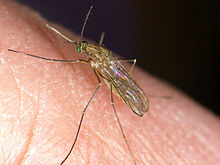 Buyer beware when it comes to lawn care services. Lately I've been seeing a number of lawn care companies saying they offer "organic-based" or "organic weed-free lawn care" or "natural lawn care". Nope, nope, nope.
Buyer beware when it comes to lawn care services. Lately I've been seeing a number of lawn care companies saying they offer "organic-based" or "organic weed-free lawn care" or "natural lawn care". Nope, nope, nope.
These companies do NOT provide organic lawn care. Instead it's the same old routine of using toxic pesticides disguised with organic, environmentally friendly buzzwords. And yes, these pesticides are harmful to adults, children, pets, wildlife, birds, bees, butterflies, and the environment.
How do you you know that they are not providing organic lawn care?
1) One big tip off is "weed free" lawns. Nope. A real organic lawn has diversity of plants - for example, clover. Only toxic pesticides can give you the sterile carpet look. Yes, an organic lawn can be lush, beautiful, and green, but it's different than a sterile carpet with only 1 species of grass (a monoculture).
2) Another warning sign is that they routinely apply "preemergent herbicides" (weed-killers). Nope, nope, nope. For example, one popular herbicide used by such companies is 2,4,-D. This was one of the 2 pesticides used in Agent Orange, and yes - it sticks around. Yikes!
3) They use the word "organic-based". They generally use this only when discussing fertilizers. Hah! Talk is cheap. I haven't yet seen evidence of real organic fertilizers being used.
4) They will routinely schedule "insect control" - of course, by using toxic pesticides. If they were real organic, they wouldn't do that - it wouldn't be needed and/or desired.
By the way, pyrethroids are synthetic toxic pesticides - they are NOT from chrysanthemums and have different effects, such as being toxic to bees and butterflies, and with harmful effects on humans, especially children. They are not used in real organic lawn care. ...continue reading "Buyer Beware When It Comes to “Organic-Based” Lawn Care Services"

 Do you know what chemicals you're exposed to on a daily basis? A recent study found that women with cancers of the breast, uterus, skin (melanoma), or ovaries had significantly higher levels of certain endocrine disrupting chemicals in their bodies than women without any of those cancers.
Do you know what chemicals you're exposed to on a daily basis? A recent study found that women with cancers of the breast, uterus, skin (melanoma), or ovaries had significantly higher levels of certain endocrine disrupting chemicals in their bodies than women without any of those cancers. This site spends a lot of time discussing the nasal passages and sinuses. That's why
This site spends a lot of time discussing the nasal passages and sinuses. That's why 

 In the
In the  We knew it was hot in July. Record breaking hot. Europe's climate monitoring organization (
We knew it was hot in July. Record breaking hot. Europe's climate monitoring organization ( Great news for people who don't have the time or the desire to engage in exercise routines, gym visits, or sports. A recent large study found that several very short bursts of physical activity (each less than a minute or two) during the day are beneficial to health. They lower cancer risk!
Great news for people who don't have the time or the desire to engage in exercise routines, gym visits, or sports. A recent large study found that several very short bursts of physical activity (each less than a minute or two) during the day are beneficial to health. They lower cancer risk!
 This summer has been hot, really hot, and the heat seems to be never-ending. Phoenix Arizona hit 118 degrees F on Saturday, which was the 23rd straight day of over 110 degrees F temperature! This raises the question: What is too hot for humans to tolerate?
This summer has been hot, really hot, and the heat seems to be never-ending. Phoenix Arizona hit 118 degrees F on Saturday, which was the 23rd straight day of over 110 degrees F temperature! This raises the question: What is too hot for humans to tolerate? A recent study was good news for those wishing to lower their chances of developing heart disease (cardiovascular disease) without the use of medications. Instead, focus on the foods you eat, specifically those in a Mediterranean-style diet.
A recent study was good news for those wishing to lower their chances of developing heart disease (cardiovascular disease) without the use of medications. Instead, focus on the foods you eat, specifically those in a Mediterranean-style diet.